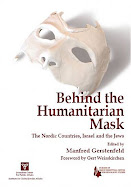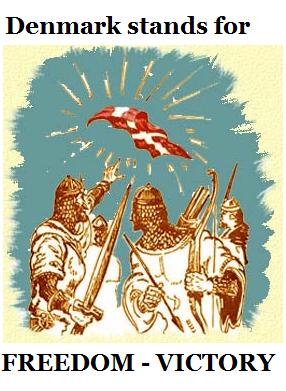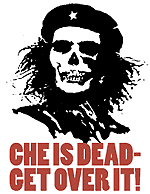
From: Dailymail
To the secret horror of the real rulers of Europe, one tiny country is letting its people vote on whether it should give up its independence for ever.
The other 26 members of the Franco-German Empire have meekly agreed to accept their new status as provinces.
But Ireland, which fought so hard to break away from Britain less than a century ago, is obliged by its cunningly-drawn constitution to put the issue to a referendum. The Irish government hates this but must allow it.
It is hopeless, of course. Even if the Irish do as they have done before over the Nice Treaty and chuck the wretched thing out when they go to the polls on June 12, they will be made to vote again and again until they give in.
Boom town: Model Glenda Gilson, former Miss World Rosanna Davison and former Miss Ireland Sarah Morrissey epitomise Dublin's glamorous new image (VIP / Tom Honan)
Since the 2001 Nice rebellion, the rules of referendums in Ireland have changed, making it far harder for the No side.
That is the nature of 'democracy' in the EU. You can vote for anything you like, but it will always be difficult to oppose them - and in any case the result won't count unless the authorities agree with you.
Yet it is also wonderfully gallant, and a bitter reminder to the passive, wilfully ignorant people of Britain - who have never really thought about the EU, who dumbly allowed themselves to be bamboozled into voting for it the one time they had a real chance to escape - that resistance is both possible and thinkable.
And how enjoyable it is that the one challenge to Europe's most dishonest and greedy seizure of power should be happening in Ireland, the spoiled child of Brussels, soothed with flattery and sprayed with subsidies.
For the EU, like every other continental great power in history, knew all too well how to play on the old rivalry and hostility between our two amazingly different islands.
What joy there has been in EU headquarters to have one Englishspeaking country that happily embraces the Euro, that flies the Euro flag with enthusiasm, scraps miles for kilometres on its signposts and generally lies back and enjoys being ravished by the new superpower.
What a contrast with the sullen, slow and grudging acquiescence of Britain.
What fun to annoy London by favouring Dublin. What a good wheeze to make former Irish Premier John Bruton the EU ambassador to Washington, so emphasising in a dozen different ways the diminished and altered status of the UK.
Millionaire Declan Ganley is leading the No campaign.
And how altered it is. Crossing our country's only land frontier has always been an odd experience.
There were never any fences between our bit of Ireland and the other, and there still aren't.
But there are quiet differences which symbolise the current state of relations. You need to know what to look for to be sure you have crossed.
Now it is strange in a new way. I can recall when there were still rusting Customs barriers on the platform of Newry station, and the way everything was much poorer and greyer in the South, from the rougher roads to the hopeless public telephones. It was also much more Roman Catholic.
Now you can tell you are in the Republic because of the fat and wealthy look of the countryside, planted thickly with showy houses, and the new motorways filled with cars - each with European-style number plates, deliberately unlike the UK's.
To the north of Dublin, smart trains serve enormous new commuter suburbs of overpriced box homes, with hardly a church in sight.
The old greyness is almost gone. And of course you must use the European Union's occupation money, the euro.
The capital itself has been transformed almost as completely as Moscow, with the same feeling that somebody has exploded an enormous money-bomb just overhead, raining down glass-fronted office blocks, mobile phones and cocktails on a grateful populace.
Old brown bars have been replaced with funky nightclubs throbbing with blondes.
You can still see the ghost of a distinctly British city beneath the change, but Dublin is now emphatically European in style, right down to its excellent trams.
Most Irish people believe their new prosperity has come from Europe. They are partly right, though much has also come from Ireland's very low business taxes.
Doubters will point out that it is hard to work out a balance between forfeiting £150billion in lost fisheries and gaining nearly £50billion in subsidies for new roads.
But the roads, and the flashy new wealth, are easier to see than the vanished fishing fleets.
As a result, the EU has a kind of cargo cult status here. It is the source of great gifts from above, and the idea that Ireland might be better off out of it (which it would be) is never spoken out loud even by those who believe it.
A current poster for the No campaign harks back to Ireland's turbulent history
That will change because the cash has already stopped. Ireland is now a net contributor to the EU by most calculations, and certainly will be once great slabs of 'peace money' - the cross-border pay-off for giving in to the IRA - have run out, as they soon will.
Ireland is also suffering from the same raging increase in the cost of living as Britain.
When I apologised to a Dublin cafe owner for paying for my €10 breakfast with a
€50 note, worth almost £40, he said: 'Don't worry. Inflation's so bad that's becoming the most common note in use.'
But right now the pro-EU consensus is as bad as it was in Britain 30 years ago. Every major political party is united in favour of the Lisbon Treaty (formerly known as the Constitution).
There are various rather noble but tiny organisations producing clever anti-EU posters. The best shows three unhelpful EU monkeys - 'They won't see you, they won't hear you, they won't speak for you'.
The fiercest pictures the 1916 independence proclamation made during the Easter Rising, which is Ireland's combined Trafalgar, Dunkirk and Battle of Britain.
It points out uncomfortably that: 'People died for your freedom. Don't throw it away.' Another, aiming lower, simply warns: 'It'll cost you.'
These are hopelessly outnumberedby the bland and smiley Yes placards that decorate every Dublin street in their hundreds.
With impeccable logic, Sinn Fein ('Ourselves Alone') is the only remotely significant party prepared to say No.
Which would mean a pretty unbalanced battle if it weren't for the slightly mysterious multimillionaire, Declan Ganley, who has flung his great energy and wealth behind a one-man No campaign that has obviously infuriated the Dublin establishment.
I watched Mr Ganley debating with the spokesmen of the two main parties, Fine Gael and Fianna Fail.
They didn't have a chance. Most people don't have a clue what the Lisbon Treaty is about so Mr Ganley, who does have a clue, tells them in fierce, forceful English that the government is lying.
And when I say English, I mean English. Mr Ganley was born deep in Galway but he speaks in the unromantic accent of Watford, where his parents emigrated to find work in the hard times.
I'm not sure this helps him, but he insists it signifies nothing.
Time and again, Irish unemployment forced him to live and work in England, until he made his fortune trading aluminium in the collapsing Soviet Union. Now he sells communications equipment to the US National Guard.
Last week a pro-EU Dublin newspaper tried to suggest there was something bad about this, trumpeting portentously that Mr Ganley's Libertas group has ' military links'.
This sort of stuff is easier than taking him on. EU documents are notoriously tangled, but I think time will prove him right and Lisbon will leave Ireland even more powerless, isolated and vulnerable than it will leave Britain.
Like us, Dublin will lose its permanent member on the Commission and, with its tiny voting strength, this is a much graver loss than it will be to Britain.
The new powers of the European Court of Justice in Luxembourg could one day be used to override Ireland's unique laws.
Nobody really knows how the Charter of Rights and Freedoms could be interpreted.
And Ireland's crucial 12.5 per cent tax rate on company profits (compared with Britain's 28 per cent) could be vulnerable to new rules on 'distortion of competition'.
Ireland was told in the past that its fishing and sugar industries were safe from the EU, and then saw both devastated anyway.
Ganley's rhetoric is tough and he takes meetings by storm. In the debate I watched, the chairman couldn't stop him, and when Ganley decided his Sinn Fein ally on the panel wasn't up to much, he simply took over, leaving the man opening and closing his mouth silently like a fish.
His rhetoric has a directness you don't often find in crabwise Irish politics. For example, he has described the Common Agricultural Policy as 'a weapon of mass destruction'.
He declared that 'after Lisbon there will be nothing left of our benefits from the EU except a piece of dental floss'.
His sharpest opponent, Fine Gael's Michael Creed, meanly suggested Ganley was 'the West Wing of British Euroscepticism', a sly attack that may do damage since any link with British conservatism is poison here.
The Fianna Fail government simply denies all Ganley's claims. But what does it know?
You sense that many of these people simply take the EU on trust, regarding it as an unstoppable natural force, and enjoy the prospect of having more power and less responsibility.
I watched the Deputy Prime Minister, Mary Coughlan, floundering helplessly as she revealed her own ignorance of the thing she was defending. She claimed that the bigger EU countries still each had two Commissioners, which hasn't been so for years.
Even so, the pro-EU politicians have fear on their side. They often speak of how Ireland will lose the 'goodwill' - that is, the special favour it has been shown - if it votes No.
And there has been talk of 'reaping the whirlwind' if one small country falls out of step with the other 26.
The best riposte to that, surprisingly enough, came from Killian Forde, a bright and witty Dublin councillor who is a prominent member of Sinn Fein.
I didn't want to like him, regarding his party as a front organisation for the IRA. But he talks intelligent, patriotic sense.
I asked him why people who had fought so hard for independence, and gone to war over the wording of a treaty, now seemed ready to give that same independence away again and leave a far more important treaty unread.
He says people don't realise how much the EU menaces their liberties because it has crept up on them. 'They started on the soft stuff and only now are they getting to the sovereignty issues.'
He points out sarcastically that the mainstream parties all go on about how much the EU has done for equality. 'Why could we not have done that ourselves if we wanted it?
Were we so stupid and backward that we needed the enlightened Europeans to tell us what to do?'
Forde also suspects that many Irish leaders have deliberately courted the EU to annoy Britain and rejects the idea that Ireland should be grateful for what it has got. What about the future?
'If it doesn't work out and we end up as an economic backwater on the edge of Europe, our children are not going to thank me for voting Yes.'
I don't know how this vote will go. The polls say that the Yes campaign is winning, but they said the same thing at this stage in the campaign over the Nice treaty and that went the other way.
Declan Ganley's intervention has upset a lot of calculations, and as another No campaigner said to me: 'When all the fat-cat politicians are agreed on something, surely you'd think that people would smell a rat?'
Well, I hope they do because if Ireland votes No it will hurl a small but dangerous spanner into the whirling, roaring innards of the European project, possibly causing an uncontrolled explosion of bile, rage and frustration that will not make it any easier to persuade Ireland to do as it is told.
What concessions can the EU bosses give that will make a difference? In reality, none.
Can they abandon the treaty? Not without abandoning the whole scheme for 'ever greater union'.
Can they allow others to do the same? I don't think so.
It would be pleasing to think that the courageous, resourceful and determined Irish people, whose unembarrassed love of their country puts us to shame, could unhorse the mighty European empire, as they once humbled ours.
But, since the last thing the No campaigners need is a British voice on their side, I wouldn't dream of saying so.


























No comments:
Post a Comment